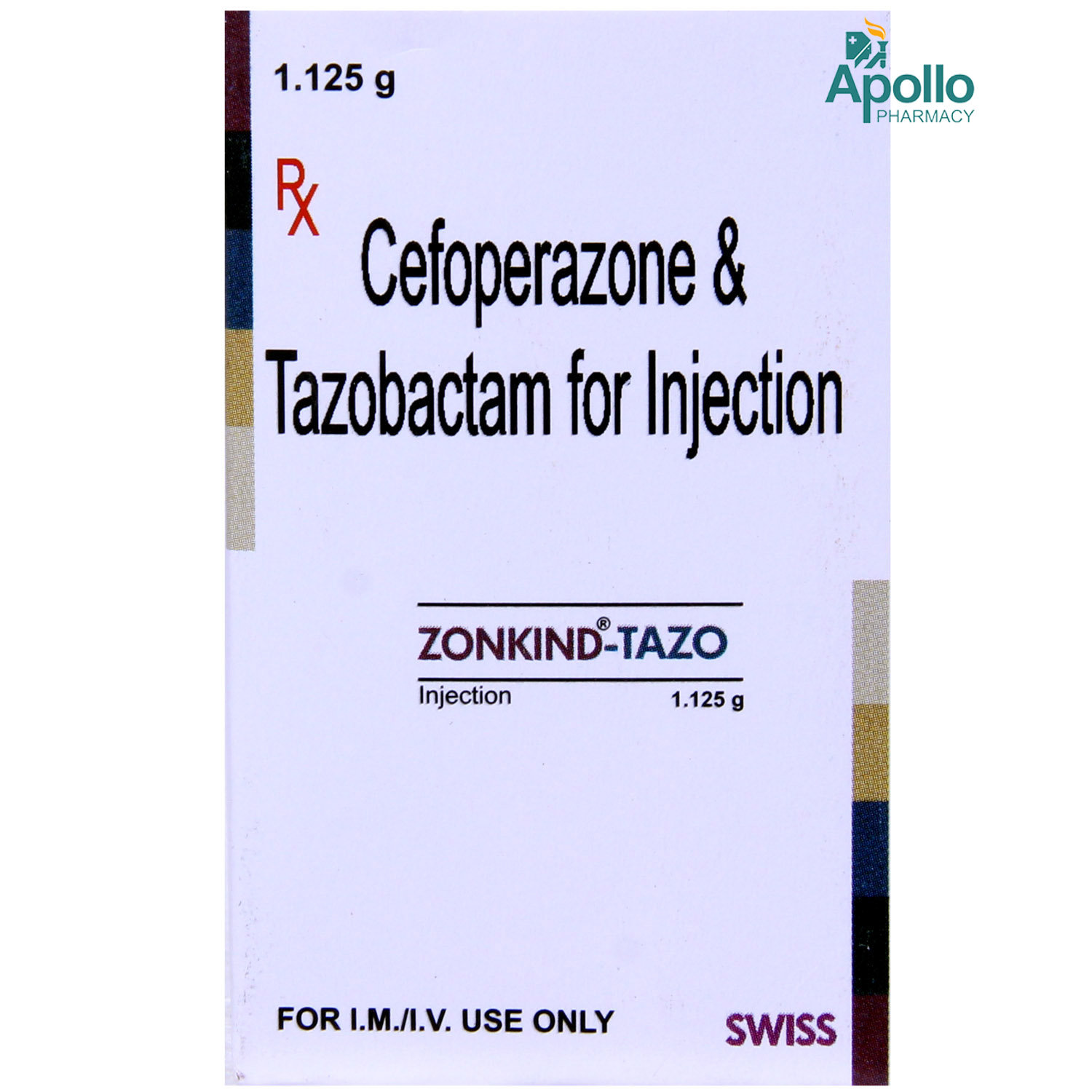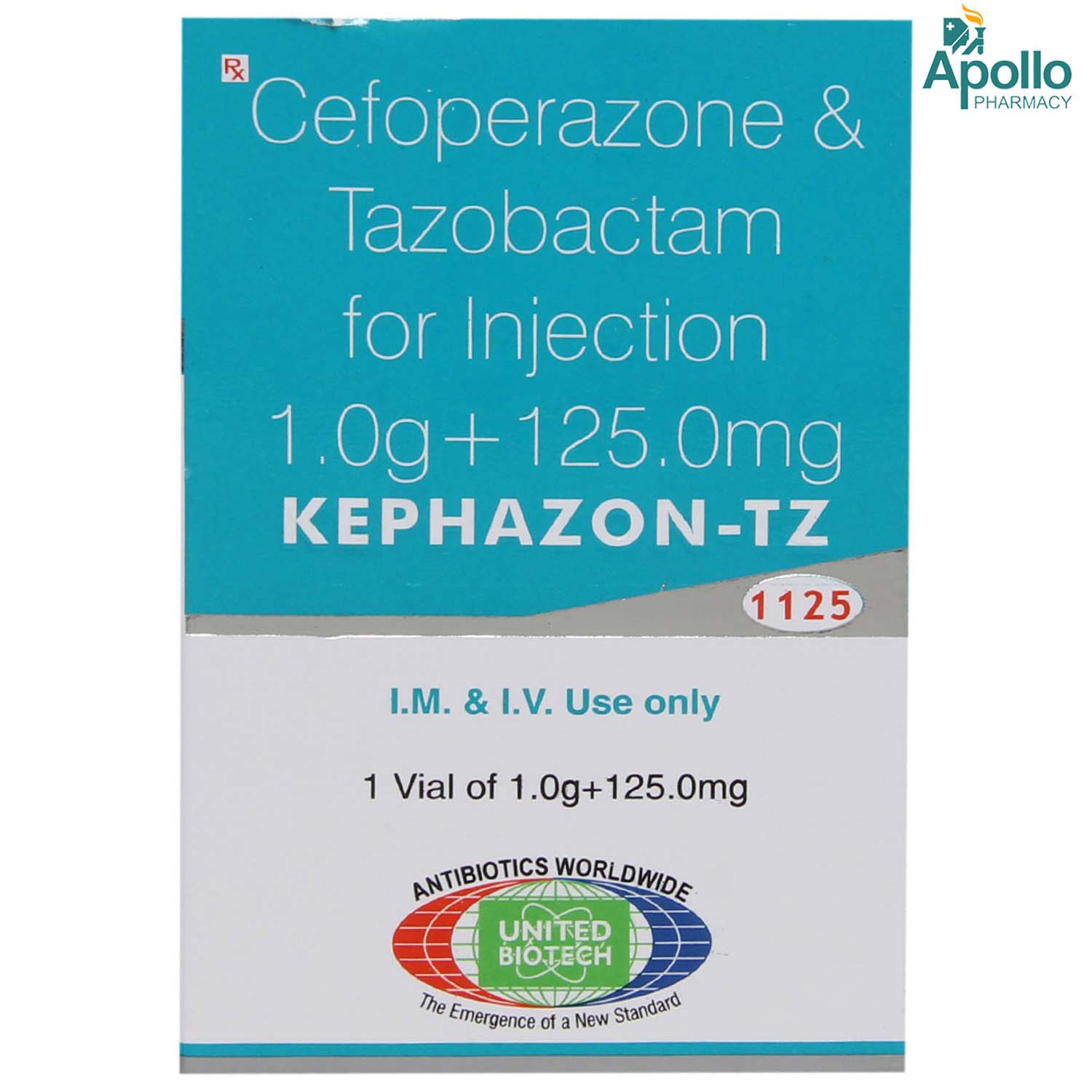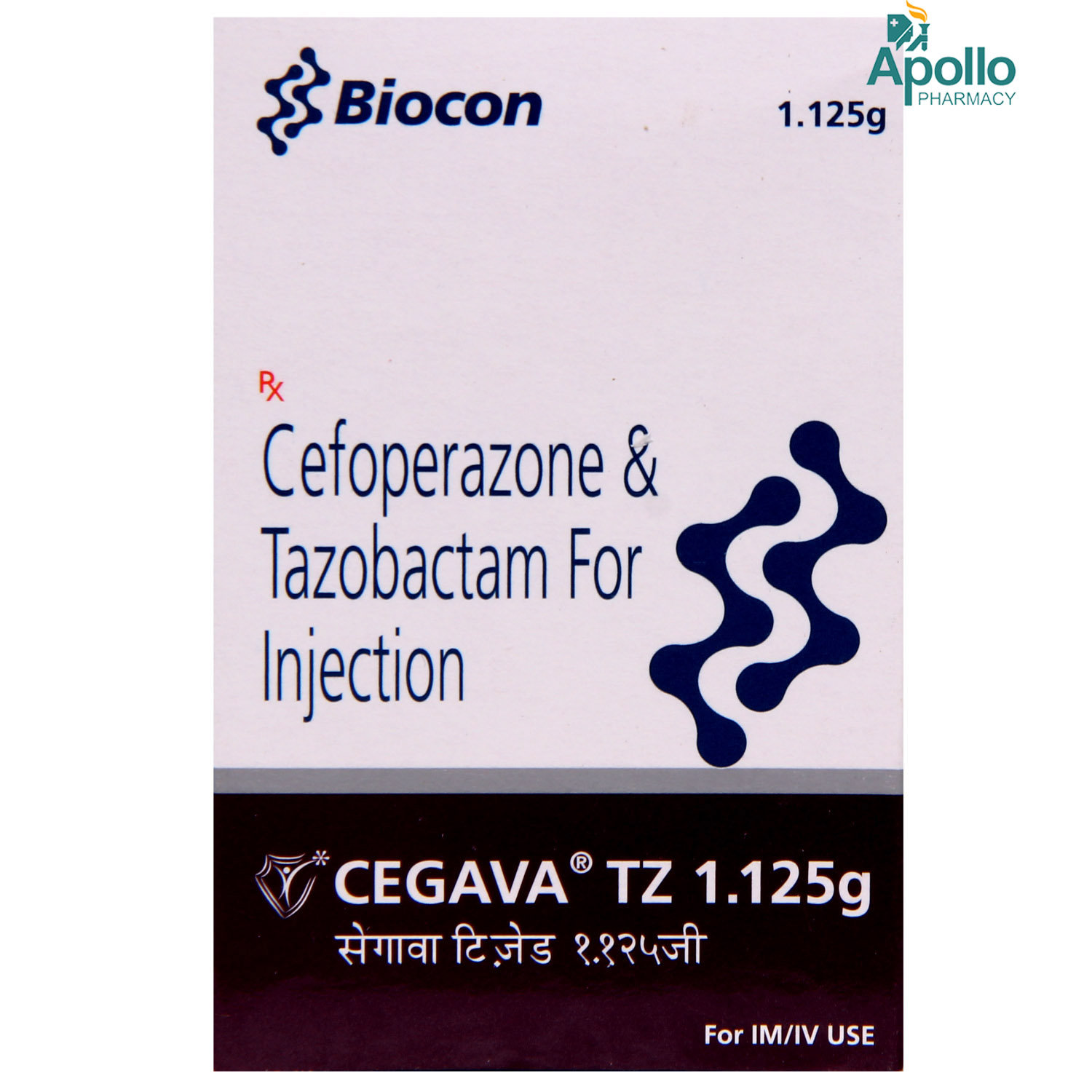- Home
- Zarobac-T 1.125gm Injection
Zarobac-T 1.125gm Injection Substitute
Zarobac-T 1.125gm Injection Substitute
Medicine Composition:
CEFOPERAZONE-1000MG+TAZOBACTAM-125MGAll Substitutes & Brand Comparisons
RX
Lupitum 125mg Injection 1gm
Lupin Ltd
₹325
(₹292.5 per unit)
38% CHEAPERRX
Out of StockCefola-XL 1.125 gm Injection 1's
Quality Pharma
₹375
(₹337.5 per unit)
29% CHEAPERRX
Out of StockCefotis TZ 1125 mg Injection 1's
Atlantis Pharmacorp Inc
₹398
(₹398.0 per unit)
16% CHEAPERRX
Out of StockCefotum-TZ Injection 1's
Biotics Lab
₹480
(₹432.0 per unit)
9% CHEAPERRX
Out of StockZonkind-Tazo 1.125gm Injection
Swiss Pharma Pvt Ltd
₹525
(₹472.5 per unit)
RX
Out of StockLypex Tz 1.125Mg Inj
Lyka Labs Ltd
₹535
(₹481.5 per unit)
RX
Zaroran-T Injection 1's
Ranmuds Pharma
₹588.5
(₹529.7 per unit)
11% COSTLIERRX
Cofaso-TZ 1125 Injection 1's
Unifaith Biotech Pvt Ltd
₹616
(₹554.4 per unit)
16% COSTLIERRX
KEPHAZON TZ 1125MG INJECTION
United Life Care Pvt Ltd
₹740.5
(₹666.5 per unit)
39% COSTLIERRX
Out of StockCegava TZ Injection 1's
Biocon Ltd
₹889.5
(₹800.6 per unit)
67% COSTLIERRX
Out of StockC-Zone-TZ Injection 1.125 gm
Rx Healthcare Ltd
₹925
(₹822.22/ 1gm)
72% COSTLIER

When Should You Consider Switching from Zarobac-T 1.125gm Injection?
Patients may explore substitutes in the following scenarios:
- High monthly cost of Zarobac-T 1.125gm Injection
- Non-availability in local pharmacies
- Generic recommendation by a doctor
- Side effects or better tolerability with alternatives
What to Know Before Switching
Before you switch from Zarobac-T 1.125gm Injection to another medicine, here are some important points to keep in mind:
Same salt, different brands:
Most substitutes contain the same active ingredient - CEFOPERAZONE-1000MG+TAZOBACTAM-125MG, but the fillers, coating, or manufacturing quality may vary slightly.
Consult your doctor first:
Even if the salt is the same, your doctor can confirm if the substitute is right for your condition, dosage, and health history.
Watch out for allergies or reactions:
Some people may react differently to certain brands due to inactive ingredients. If you notice any side effects, inform your doctor immediately.
Price ≠ effectiveness:
A lower-priced substitute doesn't mean it's less effective. Many generic medicines work just as well as branded ones.
Check the dosage form and strength:
Always match the substitute’s strength (e.g., 5mg, 10mg) and form (tablet, capsule, syrup) with what your doctor prescribed.
Uses
Zarobac-T 1.125gm Injection is used in the treatment of various moderate to severe bacterial infections. The detailed uses of Zarobac-T 1.125gm Injection are as follows:
- Treats gynaecological infections: Zarobac-T 1.125gm Injection is effective in managing pelvic infections, including pelvic inflammatory disease and post-surgical infections in female reproductive organs.
- Manages urinary tract infections (UTIs): Zarobac-T 1.125gm Injection helps eliminate bacteria causing lower and upper UTIs, including complicated cases.
- Prevents and treats postoperative infections: Zarobac-T 1.125gm Injection is used to prevent and control infections that may arise after surgical procedures.
Medicinal Benefits
Zarobac-T 1.125gm Injection belongs to the group of medicines called antibiotics used to treat bacterial infections such as gynaecological infections, urinary tract infections, post-operative infections, meningitis (inflammation of brain and spinal cord), biliary infections, septicaemia, infections in immune-compromised patients, skin and soft tissue infections, bone and joint infections, and gonorrhoea. Zarobac-T 1.125gm Injection contains Cefoperazone (cephalosporin antibiotic) and Tazobactam (beta-lactamase inhibitor). Cefoperazone kills the bacteria by inhibiting nucleopeptide synthesis in the bacterial cell wall. Tazobactam reduces bacterial resistance and enhances the activity of Cefoperazone against bacteria. Together, Zarobac-T 1.125gm Injection helps to treat bacterial infections.
FAQs
The substitutes of Zarobac-T 1.125gm Injection contain the same active salt(s) - CEFOPERAZONE-1000MG+TAZOBACTAM-125MG. However, they may differ in price, manufacturing quality, and inactive ingredients. Speak to your doctor to find a suitable option.
Switching to a generic substitute medicine in the place of Zarobac-T 1.125gm Injection is often possible if it has the same salt, strength, and dosage form. But always check with your doctor before making any changes to your medication.
Generics versions of Zarobac-T 1.125gm Injection are typically more affordable because they don’t include the original brand's research, development, and marketing costs. They contain the same active ingredient and are approved for safety and effectiveness.
Most people don’t notice any difference. However, some may react to different fillers or coatings. If you notice any unusual symptoms after switching, consult your doctor.
Make sure the new medicine has the same active salt, strength, dosage form. Always confirm the change with your doctor or pharmacist.
Substitutes of Zarobac-T 1.125gm Injection meet the same safety and efficacy standards as Zarobac-T 1.125gm Injection, but small differences in absorption or formulation can exist. A doctor can help you choose the right one for your needs.
Yes. Substitutes of Zarobac-T 1.125gm Injection may vary in color, size, or shape due to differences in manufacturing and branding, but this does not affect how they work.
Yes, it’s generally safe to switch between multiple substitutes of Zarobac-T 1.125gm Injection if they have the same salt and strength. However, always inform your doctor so they can monitor how your body responds.
Yes, many people safely use substitutes of Zarobac-T 1.125gm Injection for long-term treatment. Just ensure it’s done under medical supervision.
If your symptoms stay under control or lab results remain stable, the substitute for Zarobac-T 1.125gm Injection is likely working well. Regular follow-ups with your doctor are important.
Absolutely. Even with the same salt, small differences can affect how your body responds when switching from Zarobac-T 1.125gm Injection to its substitute. Always consult your doctor before switching.
Zarobac-T 1.125gm Injection is used to treat Bacterial infections.
Zarobac-T 1.125gm Injection works by inhibiting nucleopeptide synthesis in the bacterial cell wall. It also helps decrease bacterial resistance.
Pseudomembranous colitis, a severe inflammation of the inner lining of the large intestine, has been reported using cephalosporin antibiotics. Therefore, it is necessary to consider its diagnosis in patients who develop diarrhoea associated with antibiotic use.
Dyspepsia (indigestion) might be a side effect of Zarobac-T 1.125gm Injection. To prevent indigestion, eat smaller, more frequent meals and chew your food slowly and thoroughly. However, if the condition persists or worsens, consult the doctor.
Zarobac-T 1.125gm Injection may cause common side effects such as pain and inflammation at the site of injection, nausea, vomiting, and indigestion. These side effects may not require medical attention and resolve gradually over time. However, you are advised to talk to the doctor if the side effects persist or worsen.
You should take Zarobac-T 1.125gm Injection for as long as your doctor prescribes it, depending on the type and severity of your infection. It is typically taken for 4 to 14 days. If your symptoms do not improve or get worse, please contact your doctor immediately.
The use of Zarobac-T 1.125gm Injection does not typically cause diarrhoea. However, if you experience diarrhoea unusually or have concerns, please consult your doctor.
Zarobac-T 1.125gm Injection usually starts working within a few hours after taking it. However, the full effect may take a few days, depending on the infection and how your body responds to the medication. Always follow your doctor's instructions and let them know if you do not see any improvement in your symptoms.
If you don't get better after using Zarobac-T 1.125gm Injection, it could be because the infection is resistant to the medication or there might be another underlying cause. Let your doctor know so they can adjust your dose or treatment, check for antibiotic resistance, or look into other possible causes. Always follow your doctor's advice and never stop the medication without consulting them first.
No, you should not stop taking Zarobac-T 1.125gm Injection just because you feel better. It's important to finish the entire course of antibiotics as prescribed by your doctor, even if you start feeling better. Stopping early could cause the infection to return or make the bacteria resistant to the medication.
Buy best Infections & Infestation products by
Cipla Ltd
Macleods Pharmaceuticals Ltd
Alkem Laboratories Ltd
Lupin Ltd
Abbott India Ltd
Mankind Pharma Pvt Ltd
Sun Pharmaceutical Industries Ltd
Aristo Pharmaceuticals Pvt Ltd
Micro Labs Ltd
Intas Pharmaceuticals Ltd
Glenmark Pharmaceuticals Ltd
FDC Ltd
Zydus Healthcare Ltd
Ipca Laboratories Ltd
United Biotech Pvt Ltd
Torrent Pharmaceuticals Ltd
Emcure Pharmaceuticals Ltd
Leeford Healthcare Ltd
Zuventus Healthcare Ltd
Biochem Pharmaceutical Industries Ltd
Hetero Drugs Ltd
Dr Reddy's Laboratories Ltd
Fusion Health Care Pvt Ltd
Alembic Pharmaceuticals Ltd
Zydus Cadila
Cadila Healthcare Ltd
Indoco Remedies Ltd
Wockhardt Ltd
AAA Pharma Trade Pvt Ltd
Morepen Laboratories Ltd
Converge Biotech Pvt Ltd
Cadila Pharmaceuticals Ltd
GlaxoSmithKline Pharmaceuticals Ltd
Gufic Bioscience Ltd
Capital Pharma
Elder Pharmaceuticals Ltd
Blue Cross Laboratories Pvt Ltd
Hetero Healthcare Pvt Ltd
Alniche Life Sciences Pvt Ltd
Medishri Healthcare Pvt Ltd
Akumentis Healthcare Ltd
Mylan Pharmaceuticals Pvt Ltd
Corona Remedies Pvt Ltd
Pfizer Ltd
Apex Laboratories Pvt Ltd
Vasu Organics Pvt Ltd
Wallace Pharmaceuticals Pvt Ltd
Samarth Life Sciences Pvt Ltd
Veritaz Healthcare Ltd
Koye Pharmaceuticals Pvt Ltd
Unifaith Biotech Pvt Ltd
Laborate Pharmaceuticals India Ltd
Overseas Health Care Pvt Ltd
Hegde & Hegde Pharmaceutica Llp
Shreya Life Sciences Pvt Ltd
Biochemix Health Care Pvt Ltd
Canixa Life Sciences Pvt Ltd
East West Pharma India Pvt Ltd
Lincoln Pharmaceuticals Ltd
Ranbaxy Laboratories Ltd
Biocon Ltd
Klm Laboratories Pvt Ltd
Natco Pharma Ltd
Zymes Bioscience Pvt Ltd
Ajanta Pharma Ltd
Indchemie Health Specialities Pvt Ltd
Medley Pharmaceuticals Ltd
Pristine Pearl Pharma Pvt Ltd
Aequitas Healthcare Pvt Ltd
Allites Life Sciences Pvt Ltd
German Remedies Ltd
BDR Pharmaceuticals Internationals Pvt Ltd
Brinton Pharmaceuticals Ltd
Icarus Health Care Pvt Ltd
Neon Laboratories Ltd
Unichem International
Yuventis Pharmaceuticals
Zee Laboratories Ltd
Aurz Pharmaceutical Pvt Ltd
J B Chemicals & Pharmaceuticals Ltd
Kivi Labs Ltd
Unipark Biotech Pvt Ltd
Biological E Ltd
Celon Laboratories Pvt Ltd
DR Johns Lab Pharma Pvt Ltd
La Renon Healthcare Pvt Ltd
Medgen Drugs And Laboratories Pvt Ltd
Aionios Pharma Pvt Ltd
Intra Life Pvt Ltd
Megma Healthcare Pvt Ltd
Kepler Healthcare Pvt Ltd
Nicholas Piramal India Ltd
Indiabulls Pharmaceuticals Pvt Ltd
Lividus Pharmaceuticals Pvt Ltd
Signova Pharma
Suraksha Pharma Pvt Ltd
Bros Enterprises Ltd
Concord Biotech Ltd
Fresenius Kabi India Pvt Ltd
Novartis India Ltd





